Why You Shouldn’t Buy Vintage Synths: 5 Compelling Reasons
Do yourself a favor and abandon your vintage synth man cave dreams.
Save yourself the hassle and expense and stick with modern recreations. These and three more reasons why you shouldn’t buy vintage synths.
Why You Shouldn’t Buy Vintage Synths
I’ll be honest. I love vintage synths. My studio is full of them, stacked high, leaning against the walls and even spilling out of the closet. So it may seem strange that I’m writing a story called “Why You Shouldn’t Buy Vintage Synths.” But take it from me: I know what I’m talking about.
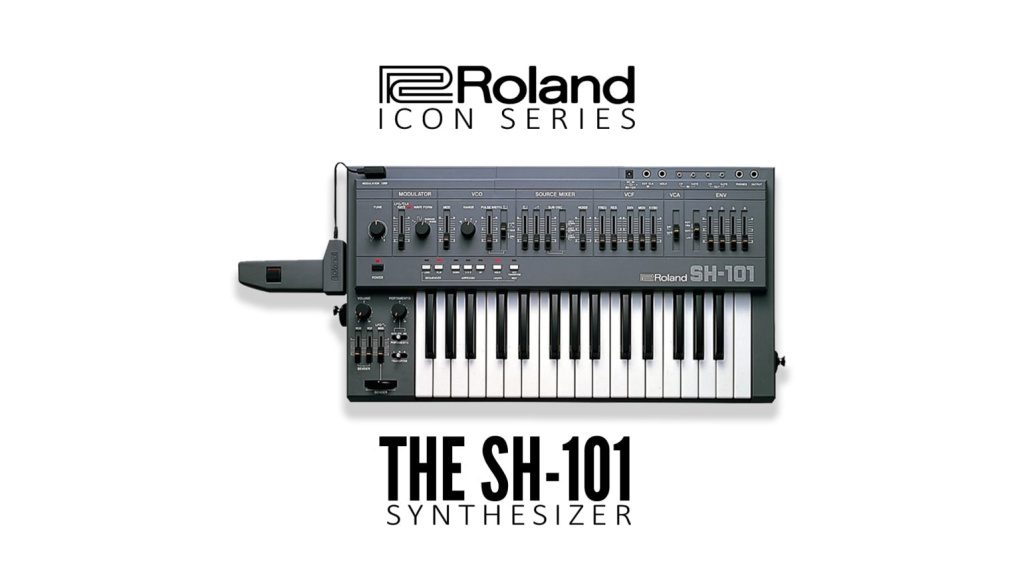
If you’re not ready, vintage synths can be a trap. Sure, it’s all fun and excitement and Facebook likes when you pick up your first Roland SH-101 but pretty soon your bank account is empty, you’ve got more synths at the repair shop than in your studio, and you’re up to your elbows in red glue from that drunken 2 a.m. Roland JD-800 eBay purchase.
Unless you’re ready to be a complete vintage synth guy and let them take over your life (and possibly even ruin your marriage), it’s probably better to just say no. M1: not even once.
Still not convinced? Here are five reasons why you shouldn’t buy vintage synths.
Why You Shouldn’t Buy Vintage Synths Reason 1: Maintenance
Vintage synths break down. All the time. It makes sense; they’re old. You may have a notion of this but it won’t really sink in just how often they’ll need to be fixed until you have to rely on them to make music. It never fails. You finally get some time to make music and at least one will suddenly be on the fritz.
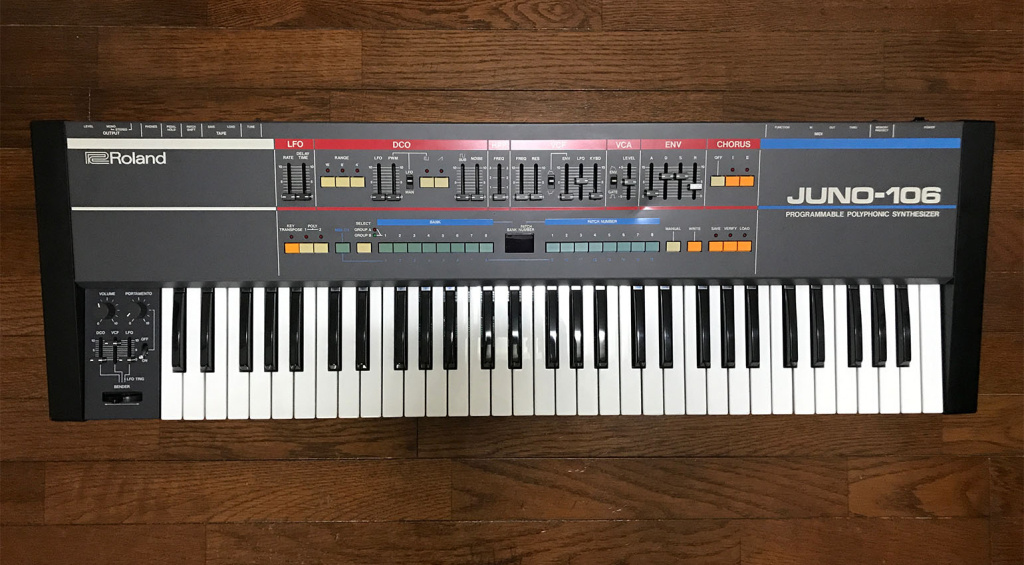
Getting vintage synths fixed can be a hassle. First, you need to find a good tech, then ship the synth, and then wait forever for it to be your turn because everyone else with this same stupid fetish is in front of you in the queue. You could learn to fix them yourself but then you’ll find that your hobby of making music has turned into synth repair. The only reason I could afford a Juno-106 is because I bought it broken and spent a whole summer restoring it.
And whether you’re sending them away or fixing them yourself there’s going to be money out of pocket. Which leads me to reason number two.
Why You Shouldn’t Buy Vintage Synths Reason 2: Expense
Psst. Hey, I hear you like vintage synths. Can I interest you in this Yamaha CS-80? If you sell your house, you may just be able to afford it. You won’t have any place to put it but that’s the price to pay for vintage synths.
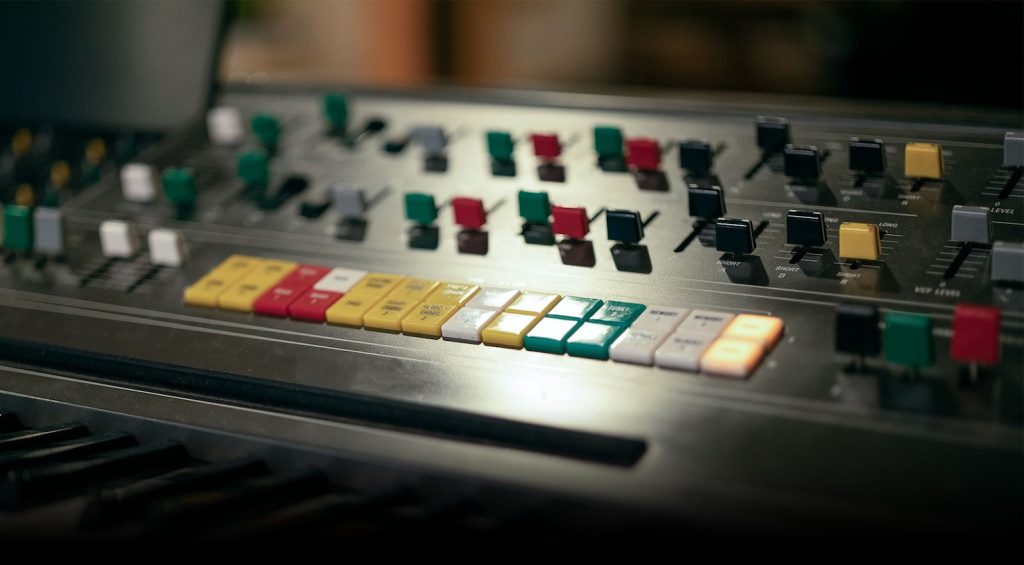
Probably the biggest reason why you shouldn’t buy vintage synths is just how much money they cost. Aside from the purchase price (which can be soul-stabbingly high) there’s the cost to ship that heavy thing to your house and the ongoing costs associated with maintenance (see above).
But, I hear you say, it’s an investment and the resale price is sure to go up too. Tell that to all the dupes on Reverb still trying to unload the gear they bought during COVID at pandemic prices.
Why You Shouldn’t Buy Vintage Synths Reason 3: Limited Functionality
Synthesizer technology has improved in leaps and bounds over the decades. Twenty-first-century synths are wonders of modern manufacturing and truly inhabit Isaac Asimov’s saying, “Any sufficiently advanced technology is indistinguishable from magic.” The Hydrasynth series from ASM? I’d call them magic. Groove Synthesis’ incredible 3rd Wave? Even Doug Henning agrees it’s magic.
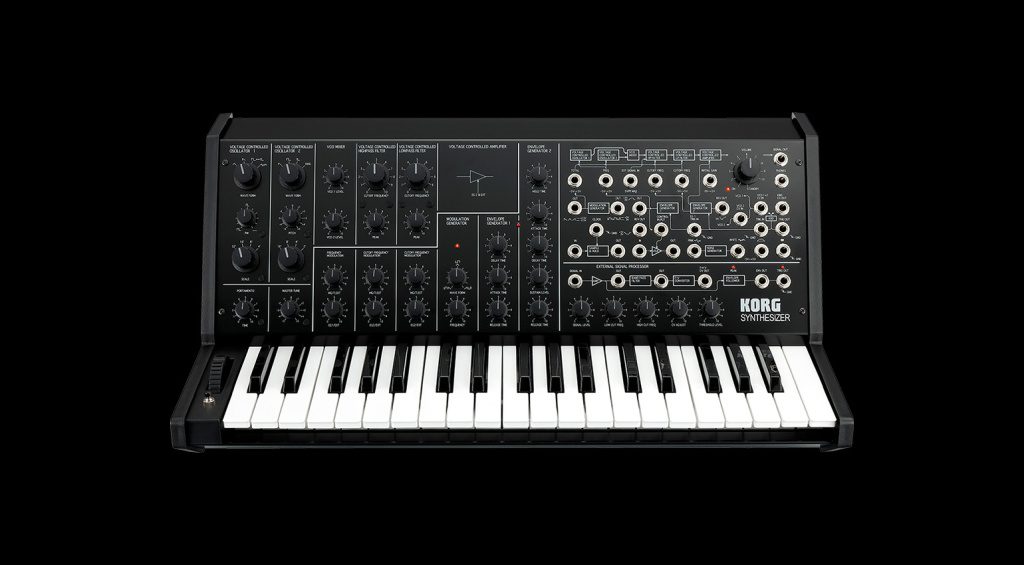
Vintage synths may sound great but – with a few exceptions – they’re mainly simple affairs when it comes to synthesis. Roland’s Juno-60 and 106? Lovely sound but only a single LFO and envelope each. Korg MS-20? Amazing filters but they couldn’t even be bothered to put in pulse width modulation. And the Moog Minimoog Model D? If you want to use its single LFO you have to sacrifice an entire oscillator.
If complicated synthesis is important to you, stick with modern instruments. Preferably digital.
Why You Shouldn’t Buy Vintage Synths Reason 4: The Sound Is Dated
I have a lot of synthesizers from the 1980s. It’s when I grew up and I have a lot of wonderful memories associated with the music from that era. I also like the sound of ‘80s synths. However, I don’t make ‘80s music. I make synth-heavy ambient. But whenever I turn in an album, the label invariably talks about the ‘80s sound in promotional materials. I’m never aiming for an ‘80s sound but that’s what happens when you use a lot of vintage synths.
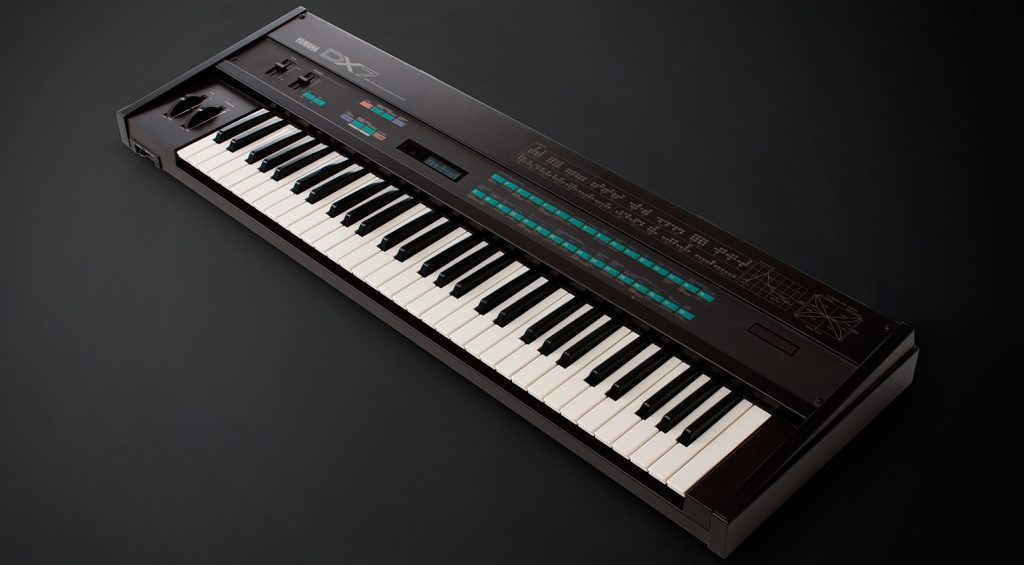
Reason four why you shouldn’t buy vintage synths is the dated sound. You might be tempted to throw a DX7 patch into your latest banger. Even without trying, however, your music will sound like it’s from the ‘80s. Moog Minimoog or ARP Odyssey? Grab a cape because that’s the ‘70s. Korg Prophecy? Yo, the ‘90s are beeping you. Unless you’re a retro musician, you’re better off investing in a modern synth with a modern – or at least a more flexible – sound. You can always turn on vintage mode for analog slop. Better to keep your options open rather than going through life with a Flock of Seagulls haircut.
Why You Shouldn’t Buy Vintage Synths Reason 5: Clones Are Readily Available
The last reason why you shouldn’t buy vintage synths is because modern clones, remakes, and emulations are so readily available. We live in an incredible time for synthesizers. You want hardware clones? You’ve got them, and often at a fraction of the price of the vintage version. Prefer to work in the box? Companies like Arturia, Cherry Audio and U-he have entire catalogs of incredible-sounding soft synth emulations of most any synth you could want. Heck, you’re even covered in the modular realm.
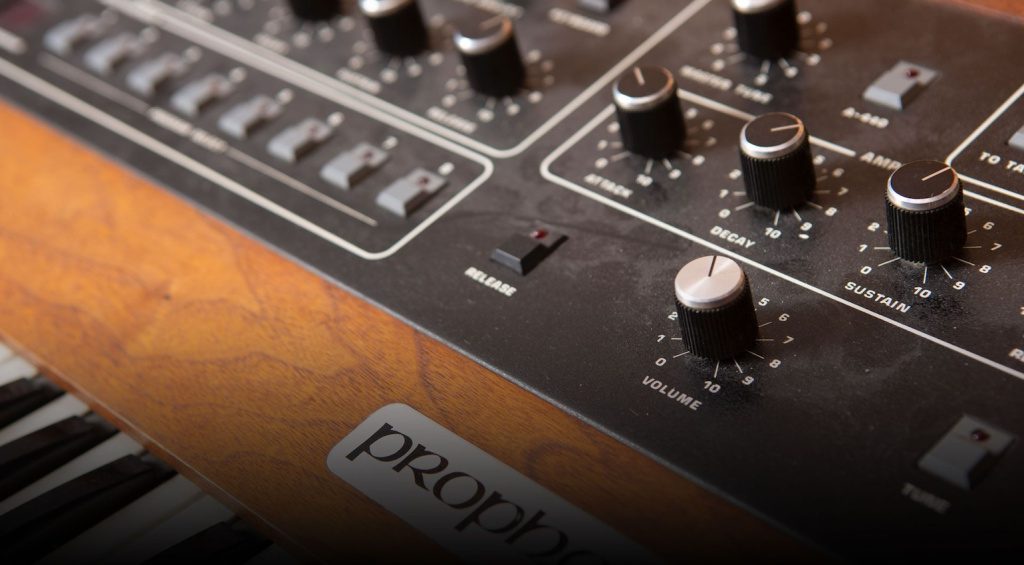
Take, for example, the Sequential Circuits Prophet-5. Dave Smith’s world-beating poly had three revisions throughout its original lifetime, with some differences in sound due to the change in chips. You could buy all three revs (and deal with the massive maintenance hassle of keeping the notoriously unreliable early revs alive) or you could just pick up Sequential’s modern recreation, which features all three revs plus a new rev 4 in one single (and reliable) unit. Too expensive? There are excellent software versions out there too from Arturia and U-he.

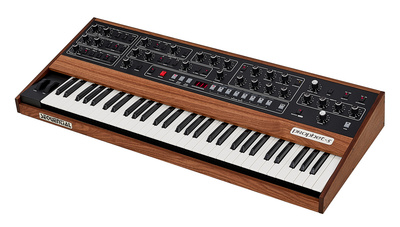

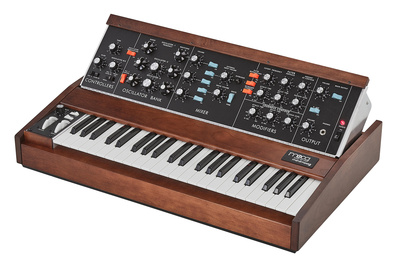

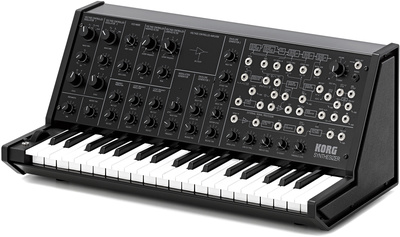

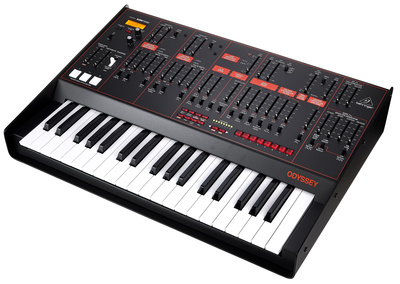



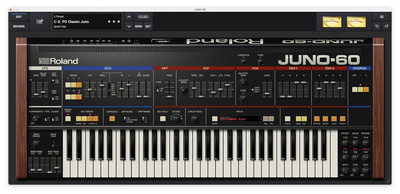



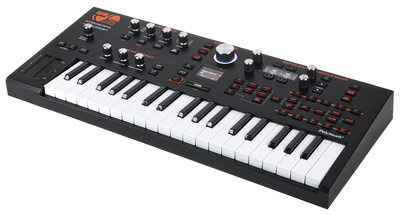

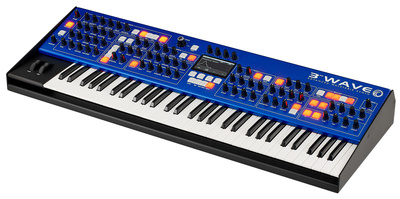
Too far gone? Got a studio full of vintage synths and a wallet full of cobwebs? Let us know all about your pain in the comments below.
More Information
- All about synthesizers
28 responses to “Why You Shouldn’t Buy Vintage Synths: 5 Compelling Reasons”
 3,2 / 5,0 |
3,2 / 5,0 | 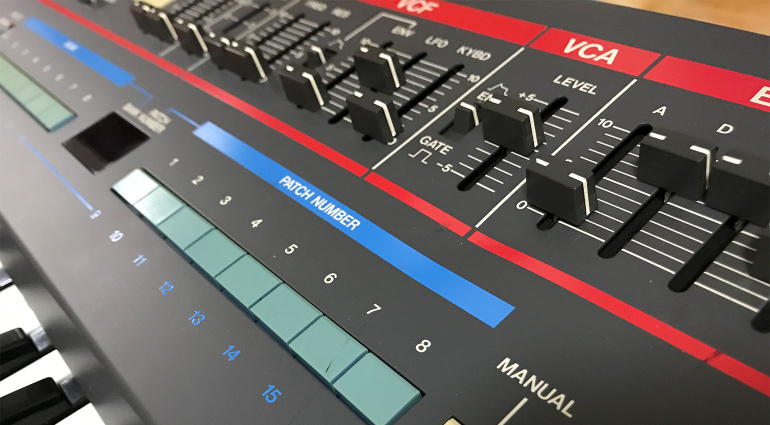


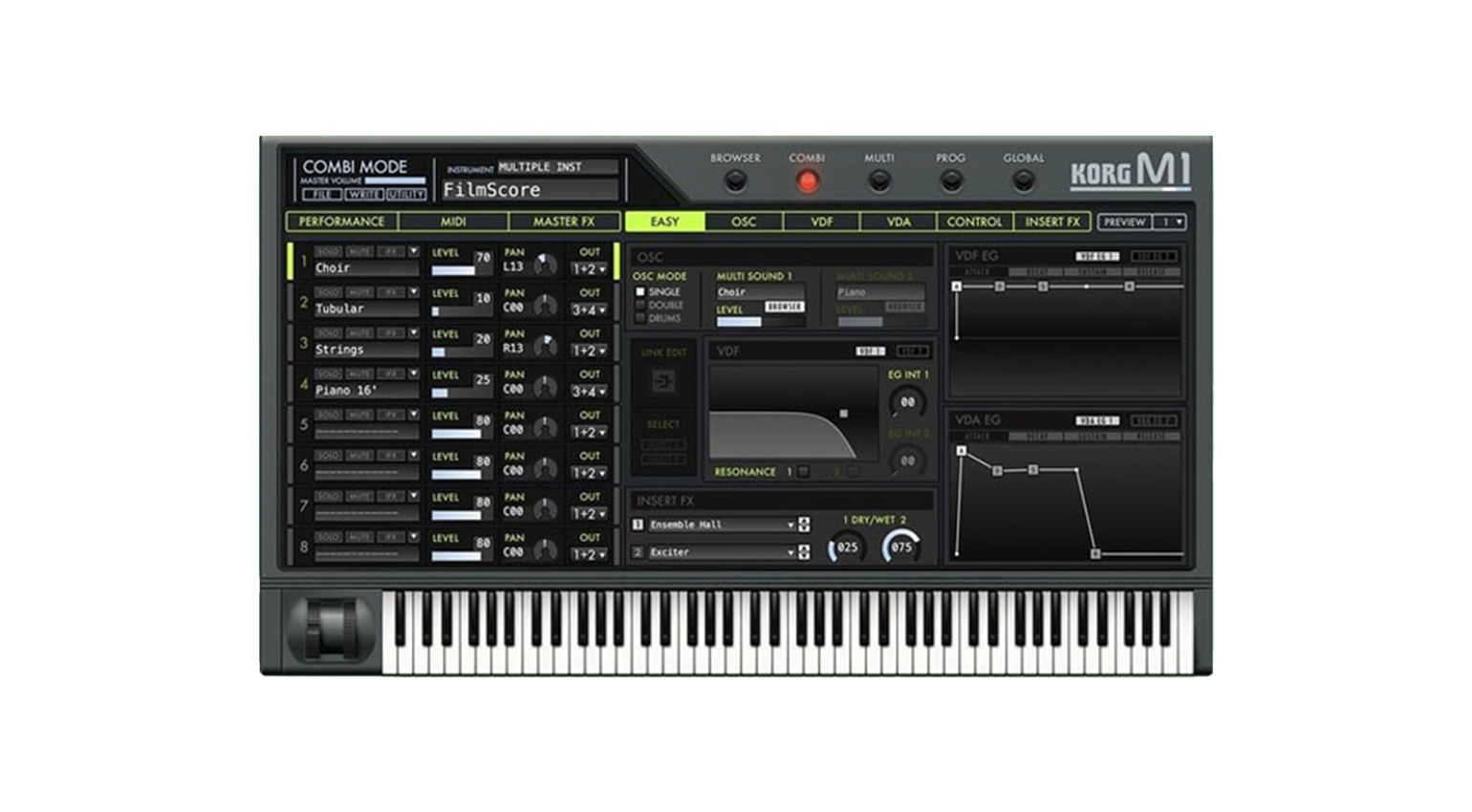

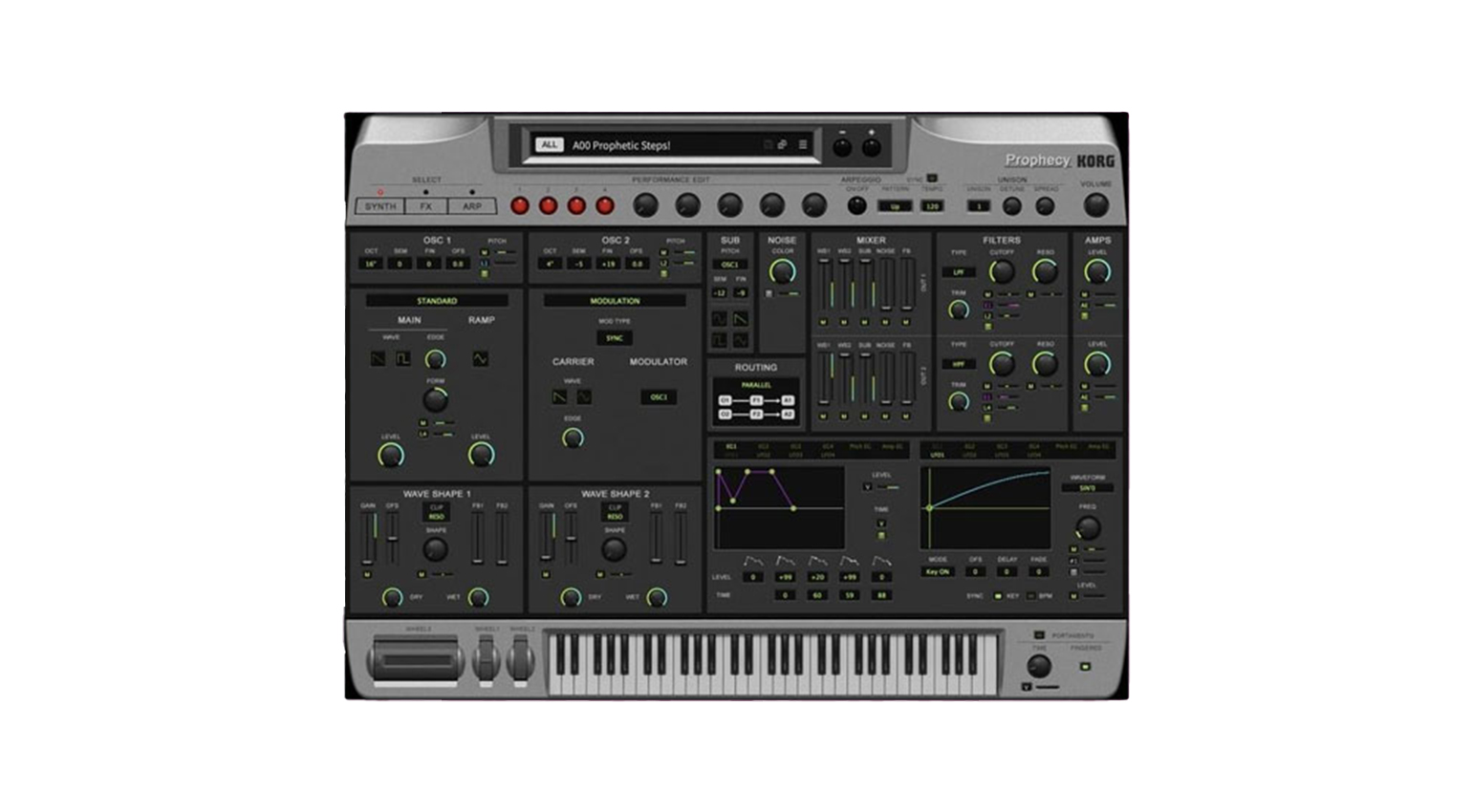
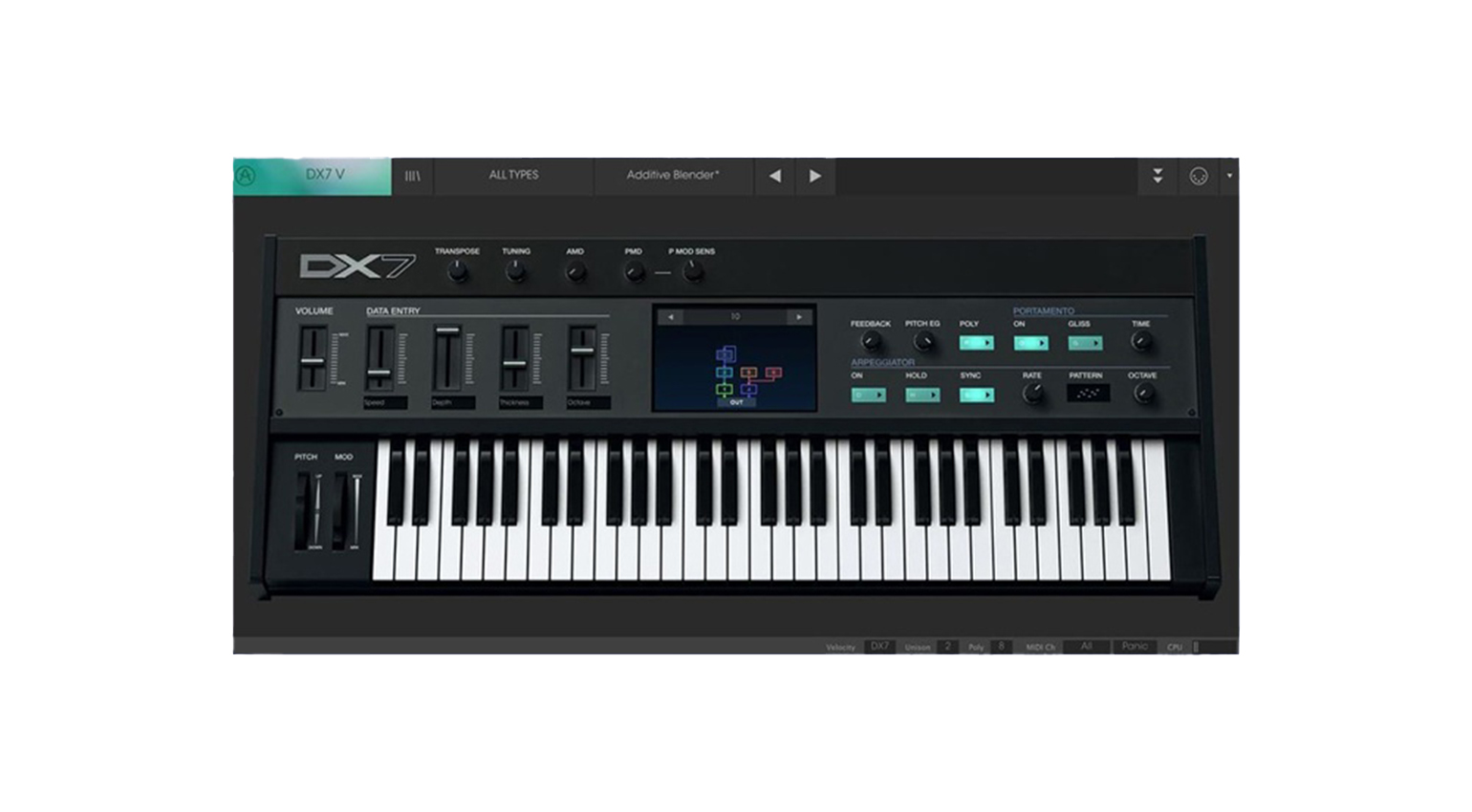
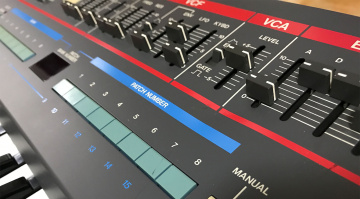

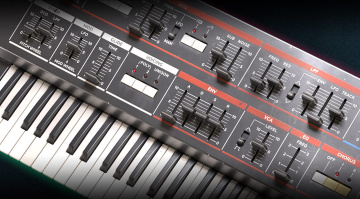
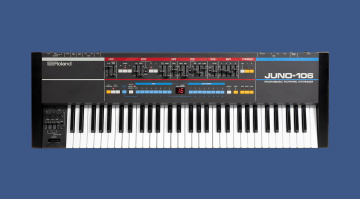
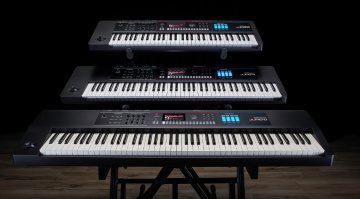
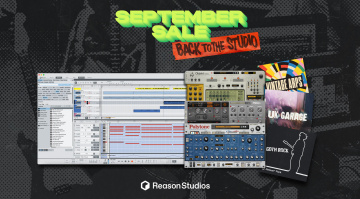
6. Time marches on and your brand new synth will be vintage before you even realise two decades have passed.
Yep, exact reason not to buy any synth… oh btw, your software will need upgrading and so will your operating system, and eventually your computer hardware.
Basically I find this article somewhat non-sensical unless you aren’t thinking at all. One can make a vintage synth sound fresh (particularly if your sounds blends old with new). If you aren’t expecting maintenance, you aren’t thinking about what you’re buying.
Btw, done vintage synths have quirks to them that can really make them special (not that new synths don’t have their own quirks too, but these quirks in any synth is what makes them unique in performance or sound characteristics).
Robbie doesn’t agree 🙂
There could be a better and more valid discussion of vintage vs new, yet like all articles on Gearnews, it is nothing more than an advert.
Of course, the biggest reason not to buy a vintage synth is because Thomann won’t make money from the sale and having people spend money at Thomann is the entire reason for the existence of this website.
Because vintage synths aren’t available at Thomann?
I only have one remark and because I’m a petty twat I have to make it known; it wasn’t Asimov that said “ Any sufficiently advanced technology is indistinguishable from magic.”, it was Arthur C Clarke.
The article is well-written, but there are a few potential flaws or limitations:
1. Bias Against Vintage Synths: While the author acknowledges a personal love for vintage synths, the article focuses heavily on the negatives without much balance. There could be a more nuanced discussion about why some musicians still prefer vintage synths despite their drawbacks—such as their unique character, tactile experience, or emotional attachment.
2. Overgeneralization: Some of the arguments, like “the sound is dated” or “limited functionality,” could be seen as overgeneralizations. Not all vintage synths have limited functionality, and many musicians intentionally seek out their “dated” sounds for specific genres or retro projects.
3. Modern Clones Comparison: The article emphasizes the advantages of modern clones, but it doesn’t fully explore some of the limitations of these clones. While they can replicate the sound closely, some purists argue that clones lack the authentic feel or slight imperfections of the originals, which can be a key reason people opt for vintage gear.
4. Assumed Audience: The tone assumes the reader is mostly interested in practical and financial concerns, but there are musicians who care more about the artistic value, nostalgia, or “soul” of vintage synths, even at the cost of the practical issues outlined.
5. Narrow Scope: The article focuses on classic reasons not to buy vintage synths (maintenance, expense, etc.), but it doesn’t mention any other modern alternatives like hybrid analog-digital synths, or how tech-savvy musicians might be able to overcome the maintenance hurdles more easily today with online resources.
Addressing these points could have made the article more balanced and inclusive of different perspectives.
AD3. Yes, people can actually tell the difference between the sound of the original synthesizer and the emulation in the mix. Good joke 🙂
I’m 68 and bankrupted myself over the years just buying the originals, selling them for a huge loss when they went out of fashion and buying the latest greatest thing next. God bless Uli Behringer 🙂
if u want real analog, just buy a modern analog synth which will have that nice smooth sound but isn’t ready to die. BTW, it’s not only analog hardware that deteriorates.. my 20-y.o microKorg’s keys have nearly all ceased functioning so now I have to use a controller keyboard to use it.
A synth only sounds as dated as the person using it 🤷🏼♂️ I’ve coaxed modern Trance, House, Techno, Dubstep, Drum n Bass, etc, sounds for soundbanks out of everything from a JP8080 to a Blofeld to a Slim Phatty to a Nord Lead 2X to a JD-08. And I would l o v e to get my hands on a proper JD-800, DX7, or Juno-106, and make a bunch of soundbanks for ’em
The maintenance costs are a valid problem, but you hand me a vintage synth (that at least has MIDI and some amount of patch storage), and I guarantee you I can coax perfectly usable sounds for any modern music genre out of it in a few days.
I run a Wavestation, D20, CS1X, E64, Microkorg and a Wavestate. All work perfectly. I am an electronics engineer but my skills have only been needed to upgrade the E64 to SD card and Oled display.
It’s amazing how you guys always seem to come up with new and seemingly interesting articles just to direct us to buy stuff from Thomann. I’m getting tired of it.
I have 2 x Sy77.. total purchase cost £150, probably £100 more spent on a floppy emulator and new capacitors. I also… a bit like the gent above… spent over £2,000 on a new Nautilus 88 in the pandemic. The SY77’s keep trucking on… I have now got the third Nautilus as the first two had to be returned to Korg as faulty… most of the time I play my SY77’s along with a couple of fab sounding 01wfd’s and a Sy85.. not costing more than £350 for the three! For fun on a budget buy the old stuff and learn how to mend it yourself. I do think people are now asking far too much for old gear… I’m sure some are just dealing for profit, which is a shame. P.S there’s no way I could ‘fix” my Natilus…!
Indeed it’s still possible to pick those up for peanuts. In the last two years, I’ve been able to get an M1, 01/WFd, D-50, DX11, V-50, SY77 and probably a couple of other things I’ve forgotten for around the £100 mark. £150 I think for the 77. Didn’t need any of them as I already owned most of them, but I can’t resist a bargain- especially when they’re virtually on my doorstep!
well a CS 80 remake that is very close the org would be dope
Syntronic V80 for iPad 😉
Been playing for 43 years. I can’t stand the word ‘vintage’…makes me feel old.
The only piece of old kit that I kept since ’83 is my JP-6, a unique sounding member of the JP series. It has only ever been used in the studio, but (of course) has a few issues.
A lot of this ‘vintage’ and modular obsession has been fueled by social media…like alot of obsessive and generally wierd behaviour I see nowadays.
The vintage synth market is now only filled with wannabes and collectors, and that totally fine.
This had me in stitches! I have a Triton, Trinity +,a Wavestation and a JP-8000 sitting on a shelf, rotting away. Meanwhile, I have dozens of synthesizers on my computer. Yes, it’s real…
I surely recommend buying vintage gear, for those without having money enough for investing in gearnews.
Synth tech here, gotta say, this article is ridiculous. most new synths are are cheapest of the cheap made, plastic and flimsy. As of late I’ve seen many newer synths fall and become broken junk. For example, the Roland Jp8000/ 8080. it uses a specific Roland coded DSP that cannot be reproduced. if it tanks, it’s a boat anchor. Korg MS2000, same thing. The DSP chips for it were available for a time, but that’s surface mount hot air station work to replace. As of late I’ve even seen Shark DSP failures of first gen and early 2nd gen AXE-FX units showing up at my shop dead. Got a faulty line 6 amp, pod any generation, or stop FX? throw it away if it’s out of warranty. can’t even get replacement parts for it. This article is bashing the early vintage stuff, but there is a reason all this vintage stuff is still around and valuable. They were built like tanks back in the day, with metal, wood, quality parts. Give me an old Juno any day with thru hole components and zero digital junk. If you take the time to restore a vintage synth, you have an investment. you have an iconic synth and sound. they will always hold there value over cheap plastic junk that’s made now. Software isn’t safe either. nowadays your an os upgrade away from not even being able to use it. look at the MAC Trainwreck of forced updates and hardware changes from Intel to ARM that left some people locked in the past. This whole article stinks of marketing.
I’m leaning more to the waste side of things.The prices are just ridiculous and the maintenance cost mostly. plus with today’s VST’s there really is not much tonal difference and if you want feel get a good controller. If you want imperfections those can be programmed,let’s face it,it’s all about the knobs and buttons we really want,that feel of total control (again, get a good controller with plenty of editing options).Anyways the average person listening won’t know if you’re playing a vintage (10k)board from a $200 plug-in emulation. I’ve got 1 Vintage Roland JV-90 (expandable synth.) and the expansions cost between $85-125.(not bad for more synths using the same board)the rest are more newer boards, but they will be old soon(vintage) with VST’s I can always update (usually free) and get updated sounds because the company wants to stay relevant…a good quality controller and save thousands
Ok, let’s be honest here. As many already concluded, this website is funding itself with affiliate links to Thomann. I accept that and mainly use this website to read about new products on the market. A more general articles about music are also welcome. I usually skip articles as this one, that are mainly adverts for Thomann. If I could suggest to the editors: write more news articles and less advert oriented nonsense articles like this one.
I mean, you can’t seriously suggest to anyone to dump a vintage James Bond Aston Martin DB5, because there is a new Toyota, that is actually better in every way 😉
Sure, your modern clone is reliable NOW. But want to make a bet your Odyssey clone is still working in 50 years time while your original one (with simple maintenance) will still be making music in the hands of your children?
The turnover in chips and the reliance on surface mounted components make modern synths highly unlikely to be repairable in as little as ten years.
Simple discreet components are the reason we’re having this discussion. I rather doubt we’ll be having it about a Deepmind or a Hydrasynth in 50 years time…
this is absolute hogwash. My Juno 106 has been a tank.
i disagree… i have roland jv 1080, fantom x6 and korg triton rack and they are epic synths.. the reason i bought them is because i have so much modern sounds that i needed older vintage.. i had a novation ultranova and sold it because it had too few selection of patches.. yes i regret it, but there was nothing special really about that NEW synth.. most plugins are great yes but hardware has a big, fat sound straight.. it its like glues the mix instantly, i need to layer my soft synths maybe 4 times but hardware is enough ONE time…
You are currently viewing a placeholder content from Facebook. To access the actual content, click the button below. Please note that doing so will share data with third-party providers.
More InformationYou are currently viewing a placeholder content from Instagram. To access the actual content, click the button below. Please note that doing so will share data with third-party providers.
More InformationYou are currently viewing a placeholder content from X. To access the actual content, click the button below. Please note that doing so will share data with third-party providers.
More Information